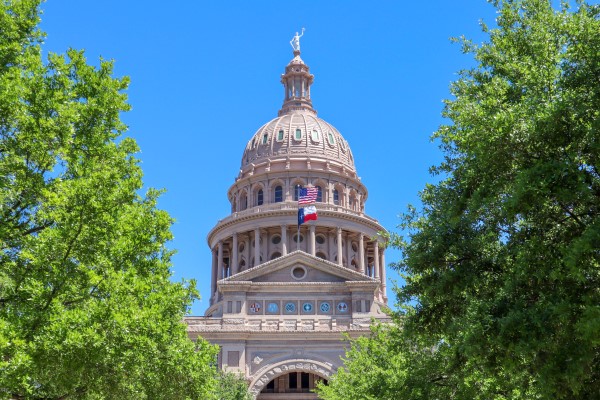Legislative Session Update: Week 16
Published Apr 26, 2019 by Taylor Landin
During the 86th Legislative Session, the Partnership will provide a weekly update on our top executive priorities and other newsworthy items from Austin.
After many weeks of anticipation, the Senate Education Committee heard its school finance reform bill. Now, all major pieces of legislation for this session have been heard in committee. As we enter the final month of the session, significant negotiations will continue between the House and Senate on how to approach major initiatives, including school finance and property tax reform.
PARTNERSHIP EXECUTIVE PRIORITIES
SCHOOL FINANCE REFORM
The Senate Education Committee met Thursday to consider both the House and Senate versions of school finance reform legislation, House Bill 3 by House Public Education Committee Chairman Dan Huberty (R-Kingwood) and Senate Bill 4 by Senate Education Committee Chairman Larry Taylor (R-Friendswood). Chairman Taylor submitted a committee substitute that included extensive changes to HB 3, which the House approved several weeks ago. Major provisions in the Senate committee substitute include:
• Increase in the base funding per student to $5,880, a slight decrease from $6,030 included in the House version of the bill.
• Performance-Based Allotment to incentivize improvement in outcomes for students in 3rd grade Reading and College, Career, and Military Readiness.
• Classroom Teacher and Librarian Allotment to allow for a $5,000 across-the-board pay increase for all full-time teachers and librarians.
• Merit and Incentive Pay Allotment that allows districts to develop a local teacher evaluation system, with input from teachers, that effectively identifies the highest performing teachers and incentivizes them to teach at the lowest performing schools.
• Early Reading Allotment for children in K-3rd grade and a requirement to provide full-day Pre-K for all eligible four-year-old students.
The substitute bill also includes significant property tax relief provisions that would be implemented over a three-year period following the passage of the legislation. Those provisions include a move to current year property values rather than assessing local revenue collections off of prior year property values, state compression of local school district maintenance and operations property taxes, an increase to the residence homestead exemption to $40,000, a sales tax swap to further buy down property taxes, and a 2.5 percent local property tax cap for school districts.
During the hearing, three key concerns were raised. Some expressed concerns about the one-time $5,000 across-the-board pay raise taking resources away from transformational reforms. Senator Paul Bettencourt (R-Houston) expressed opposition to a sales tax swap to buy down local school district property taxes. Others questioned how the property tax compression and revenue rollback cap would impact school districts’ abilities to raise adequate revenue and accommodate growth.
The committee is likely to vote on the bill next week.
FLOOD RESILIENCE
Senate Bill 7 by Senator Brandon Creighton (R-Conroe) and House Bill 13 by Representative Dade Phelan (R-Beaumont), the two bills championed by the Partnership, were passed in the early stages of session on expedited timelines. While the last few weeks have not seen public activity on this issue, the Partnership continues to shepherd these bills through the process. Flood resilience and recovery continue to be well positioned with statewide leaders and important champions in the Legislature. We expect that behind-the-scenes work to continue over the final month as Governor Greg Abbott, Lt. Governor Dan Patrick and House Speaker Dennis Bonnen determine how the Legislature will ultimately finalize the flood planning, recovery and resilience package.
WEEK IN REVIEW
Property Tax Reform
On Thursday, the House Ways & Means Committee voted out the Senate’s property tax reform bill, Senate Bill 2, by Senator Paul Bettencourt (R-Houston). The House introduced a committee substitute that aligned with the Senate by setting a revenue rollback rate for cities, counties and emergency service districts at 3.5 percent. The House also holds the rollback rate for hospital districts and community colleges at the current 8 percent rate, but makes a rollback election an automatic trigger rather than by petition. The House and Senate remain divided on local school district property taxes. The House prefers to address school property taxes in the school finance bills, and the Senate prefers to do so with more stringent property tax reforms. The language passed by the Senate sets the local school district property tax revenue rollback rate at 2.5 percent. The House committee voted to lower the property tax revenue rollback rate for school districts to 2 percent as a symbolic demonstration of their willingness to continue negotiations with the Senate.
Eminent Domain
The long-awaited House committee hearing on eminent domain reforms occurred this week. The House Land & Resource Management Committee chaired by Representative Tom Craddick (R-Midland) heard House Bill 991 by Representative DeWayne Burns (R-Cleburne) and Senate Bill 421 by Senator Lois Kolkhorst (R-Brenham). Energy and pipeline companies re-stated their concerns with some provisions which could potentially lead to increased litigation. Progress has been made in negotiations of the initial financial offer process and in public hearings with landowners, though more stakeholder meetings lie ahead. The bills were left pending in committee.
University of Houston College of Medicine
House Bill 826 by Representative John Zerwas (R-Richmond) is on its way to Governor Abbott’s desk for his signature. The bill establishes a new College of Medicine at the University of Houston, which will develop Texas’ primary care physician workforce. The Texas Department of State Health Services estimates the Houston region could see a shortage of over 3,300 primary care physicians by 2030. The new College of Medicine is an important asset to address that shortfall.
Stay up-to-date with our Policy Team throughout the 86th Legislative Session by opting-in to this weekly update or follow the team on Twitter @GHP_Policy
 The Houston Report
The Houston Report


















